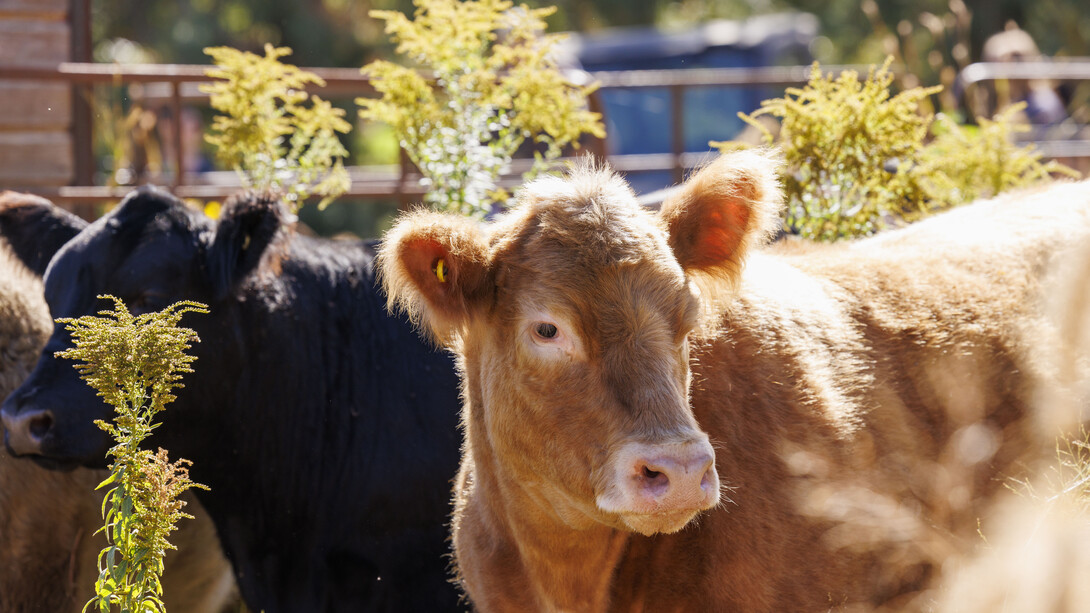
Twenty students from across Nebraska have been selected for a highly competitive University of Nebraska–Lincoln program aimed at increasing the number of production animal veterinarians in the state.
The students, all high school seniors set to graduate this spring, were selected for the second cohort of the Nebraska Elite 11 Veterinarian Program. The program, a partnership between Gov. Jim Pillen and the university, is aimed at addressing Nebraska’s shortage of food animal veterinarians.
Nebraska’s livestock industry contributes more than $6 billion annually to the state’s economy — an impact that is especially significant in rural counties and communities. Veterinarians play a critical role in keeping livestock healthy, improving herd health, and responding to disease and public health issues, among many other services, according to the U.S. Department of Agriculture.
“I’m excited for the futures of these students,” Pillen said. “They are pursuing a career path that is certainly in high demand. We need skilled veterinarians who can provide advice and services to Nebraska’s livestock producers. Their commitment to working in our rural communities will help ensure food security, now and into the future.”
Following is a list of students accepted into the second cohort of the Nebraska Elite 11 Veterinarian Program, listed alphabetically by hometown:
- Ayr: Carter Auten
- Bancroft: Noah Brichacek
- Bennet: Emily Van Meter
- Berwyn: Alex Berghorst
- Big Springs: Claudia Rhoades
- Bloomfield: Ava McFarland
- Bridgeport: Tessa Little
- Broken Bow: Keelyn Shea
- Burwell: Colter Wright
- Clearwater: Raina Krebs
- Columbus: Nicole Martensen
- Cozad: Kolton Goff
- Friend: Baylor Behrens
- Hampton: Kash Majerus
- Herman: Mason Stoddard
- Lincoln: Claire Kolbet
- Marquette: Emma Ellis-Sack
- North Bend: Olivia Buresh
- North Platte: Jenna Miller
- Stapleton: Cameron Berliner
Each student will receive the Nebraska Production Animal Health Scholarship, which covers 50% of tuition for the first two years of study in the College of Agricultural Sciences and Natural Resources. Following a second year of study, 13 will be chosen for a continuation scholarship that covers 100% of tuition during the third and fourth years.
From there, the Elite 11 will be selected from Nebraska’s Professional Program in Veterinary Medicine to have all tuition and fees paid for while attending the university’s dual Doctor of Veterinary Medicine program with Iowa State University. The Elite 11 program aims to ease the financial burden of obtaining a veterinary degree for Husker students who commit to practicing veterinary medicine in clinics that serve large animals in Nebraska.
“On behalf of CASNR, I am thrilled to welcome these 20 outstanding students from across the state into this transformational initiative,” said Tiffany Heng-Moss, dean of the College of Agricultural Sciences and Natural Resources. “The success of this program’s first year has shown the powerful impact of investing in our future veterinarians — young leaders who will serve as the backbone of Nebraska’s agriculture: our production animal industry. We extend our deepest thanks to Gov. Pillen for his continued leadership and commitment to this critically important field.”
Chase Martin, a sophomore animal science and pre-veterinary medicine student and one of the 19 members of the first Elite 11 cohort, grew up on a cow-calf seedstock operation near Wellfleet. He applied for the program after several veterinarians who practiced near his hometown encouraged him to do so. So far, he said, he has found the program to be eye-opening in many ways, including to all the opportunities within the large animal veterinary industry.
During the freshman orientation class for all members of the first Elite 11 cohort, veterinarians who work for feedlots and poultry, dairy and swine operations, in addition to those in more general practices, shared their experiences with the class. Martin said he had not realized there were so many opportunities to specialize.
“I’d always thought of (the profession) as the guy who goes and practices in the local town and does a little bit of everything,” he said.
The orientation also covered skills important for veterinarians, such as responding to challenges and stress management. Perhaps most importantly, it created connections among the Elite 11 students. Martin has kept in touch with his classmates throughout the spring semester. He sees some at Rodeo Club events and through other campus organizations, and he has met up with others to study.
“A really cool part of the Elite 11 is that we’re all kind of in the same stage of college,” he said.
“We’re in a lot of the same classes. If one of us needs help on a chemistry assignment, it’s a phone call away.”
Seeing the students connect and get involved on campus has been rewarding, said Deb VanOverbeke, head of the Department of Animal Science and one of the instructors of the freshman orientation course. Many of these students will continue to cross paths throughout their schooling and over the course of their careers, she said. They will also face many of the same issues and challenges throughout college, veterinary school and in the workforce, which makes building a network critical for their later success, she said.
“We really wanted to create an experience that would set them up for long-term success, and in the process, set Nebraska’s livestock industry up for long-term success, too,” VanOverbeke said.
For more information on the Elite 11 program, click here.







